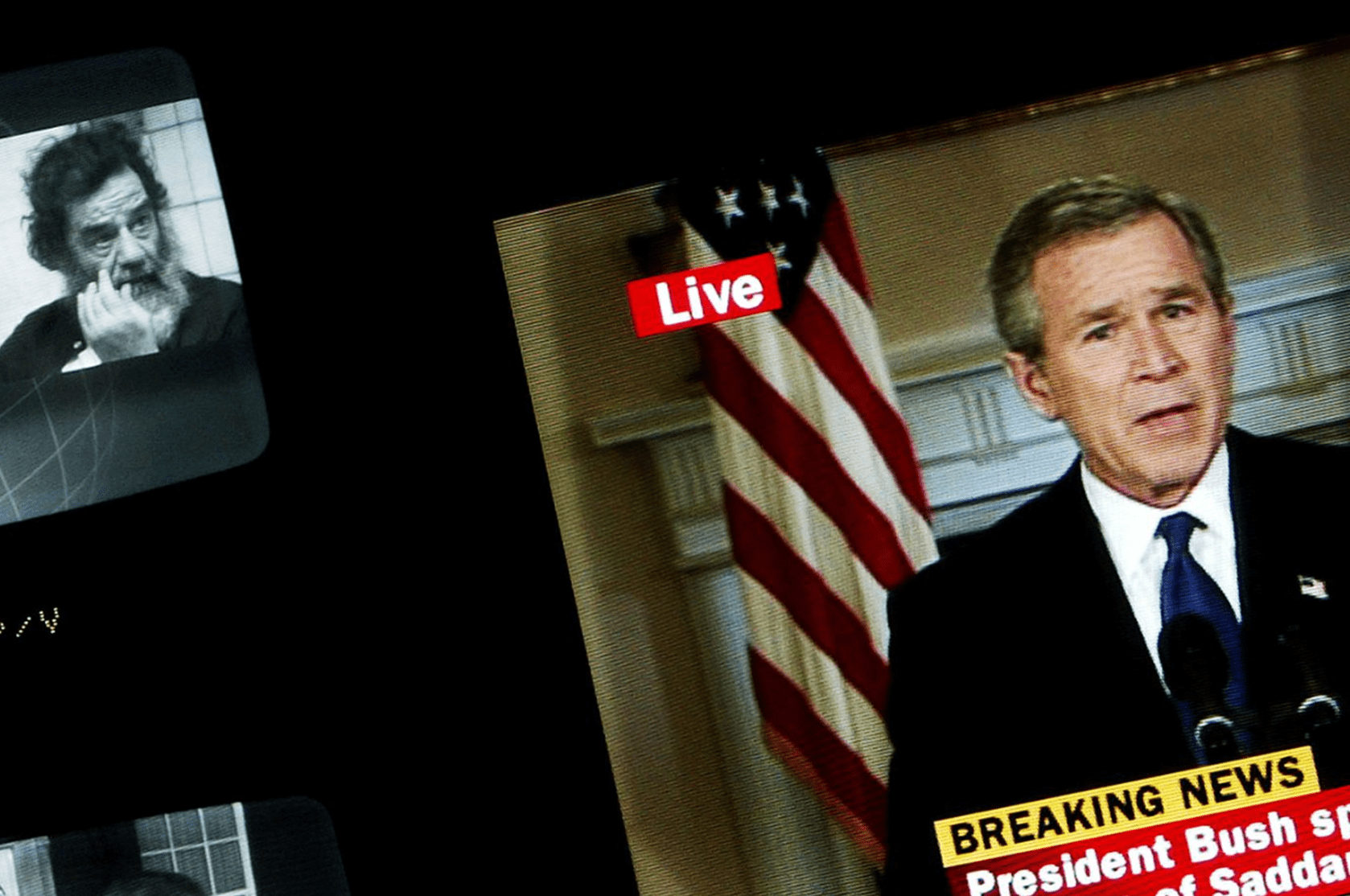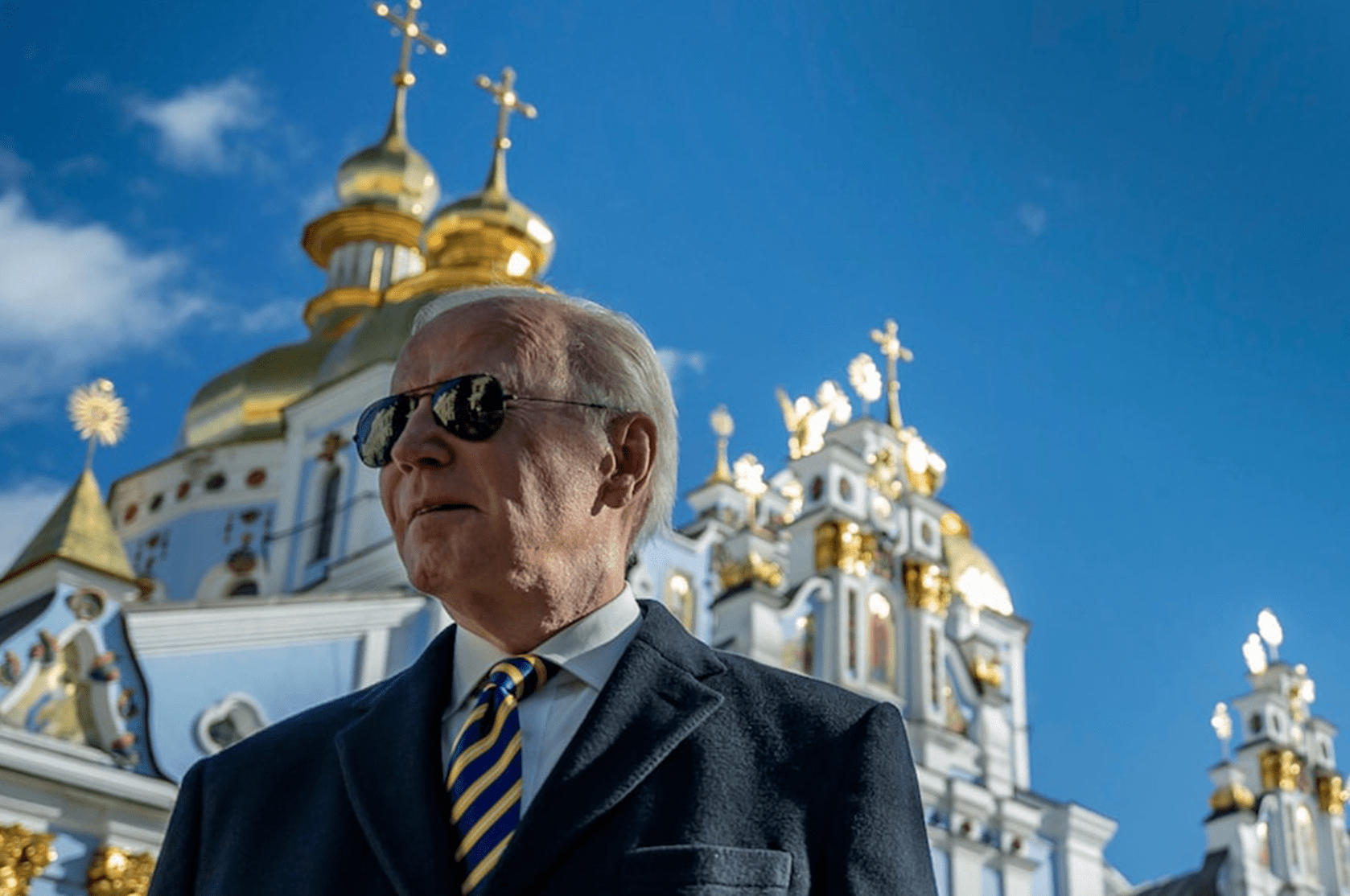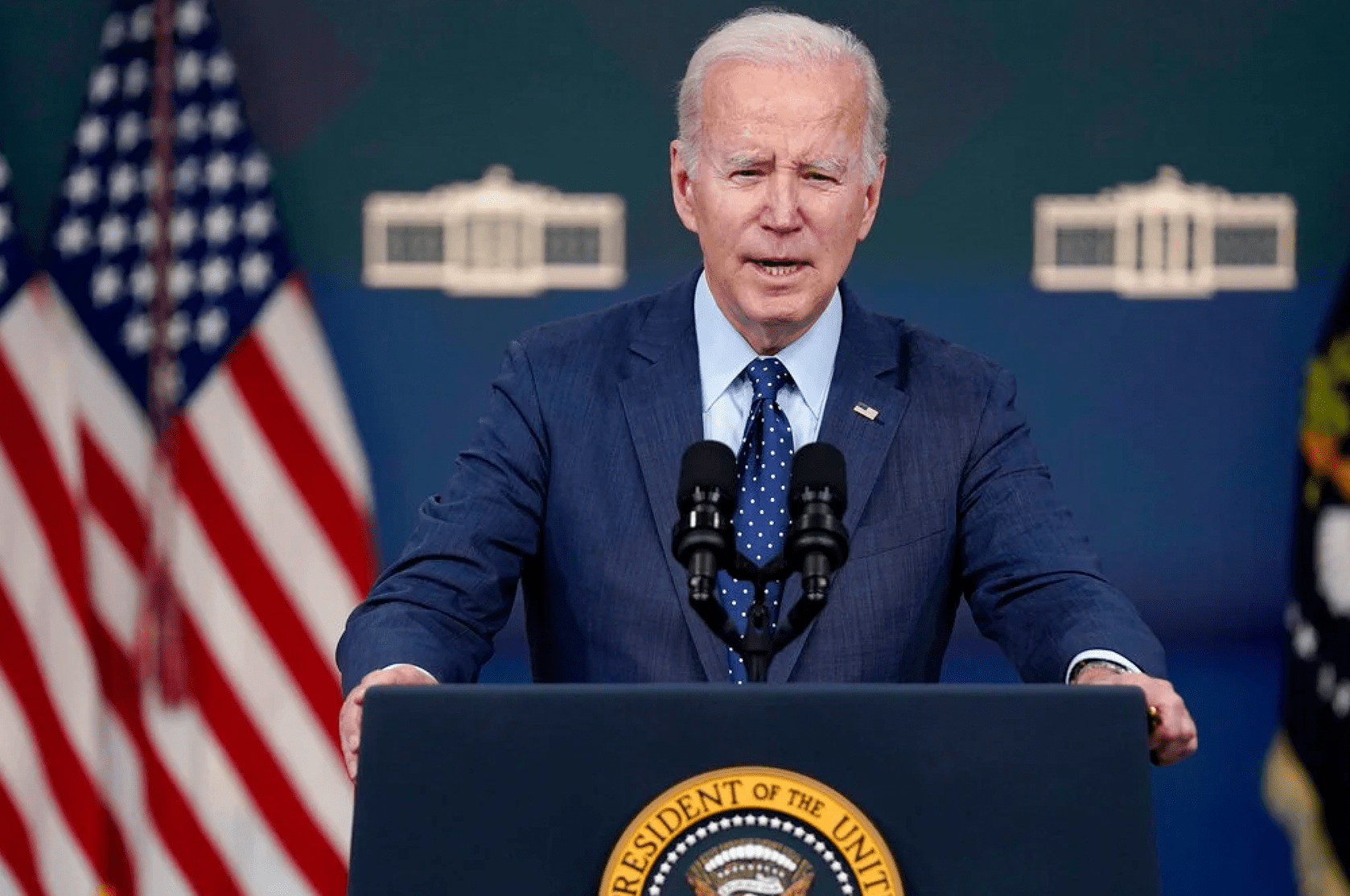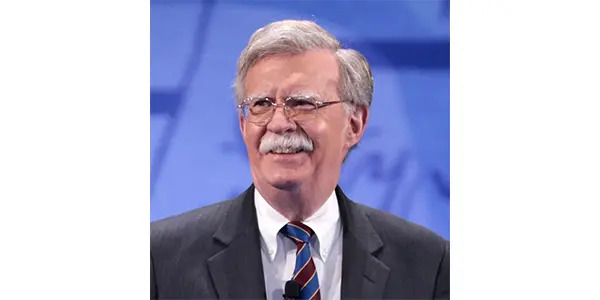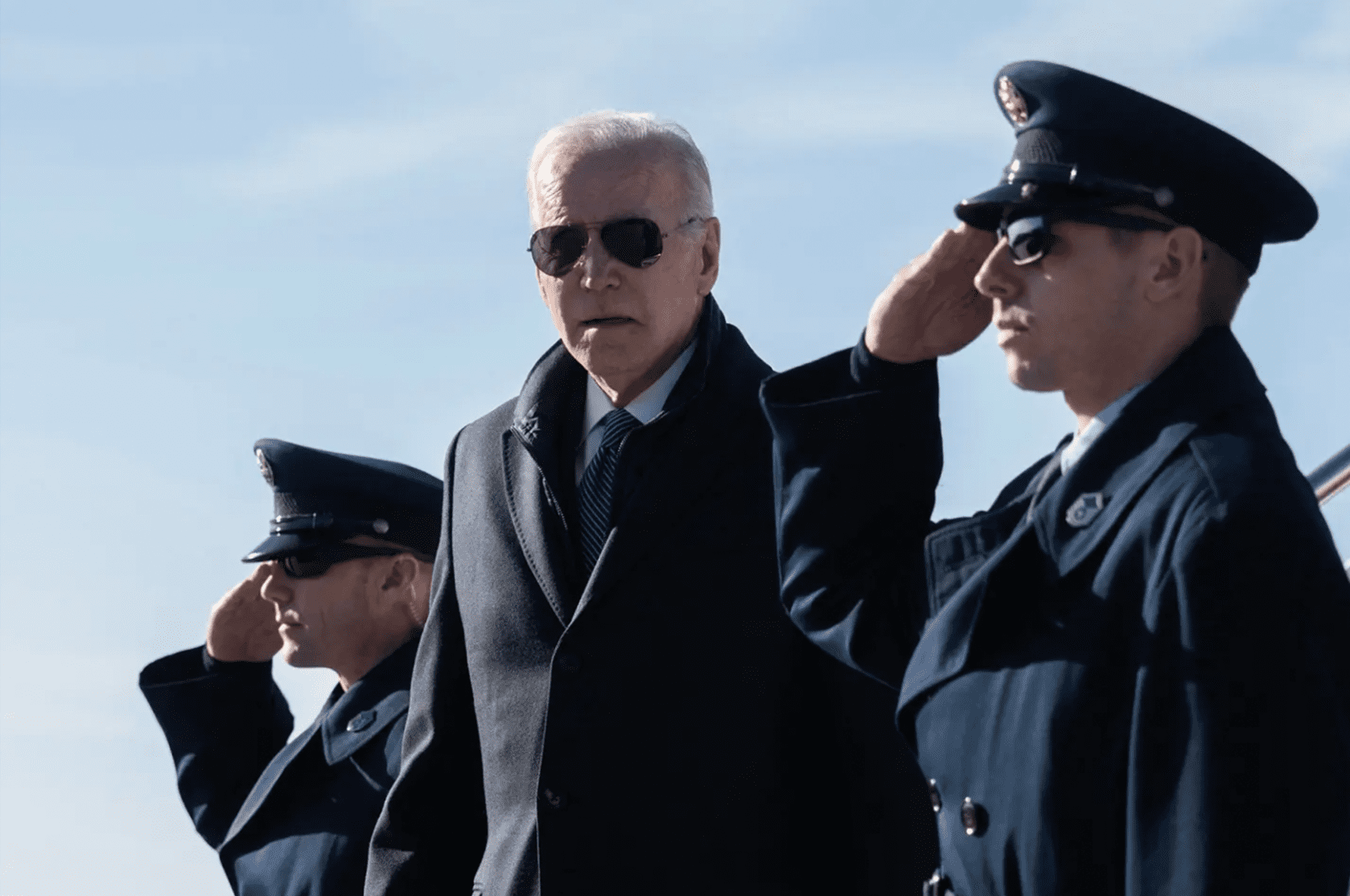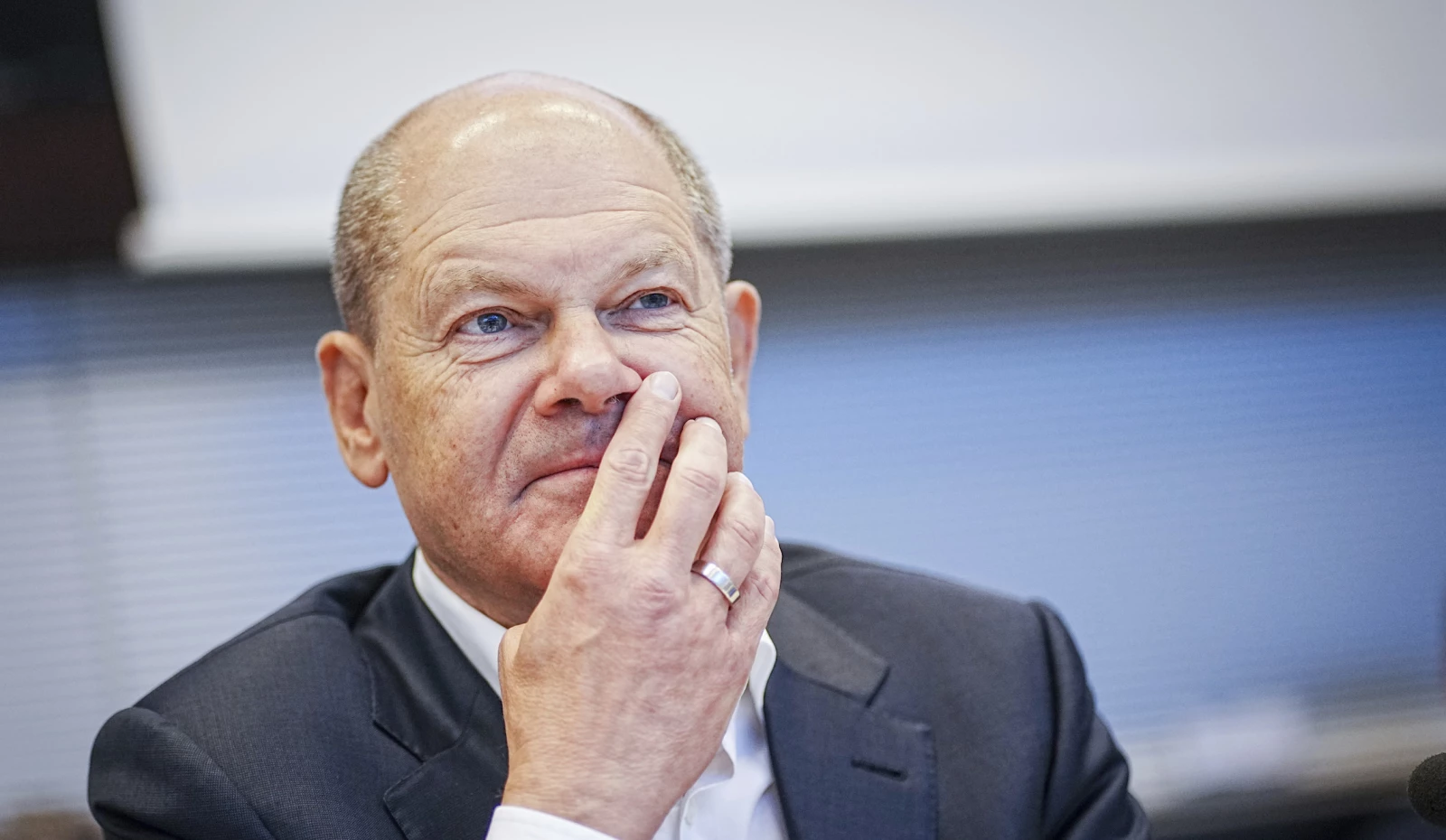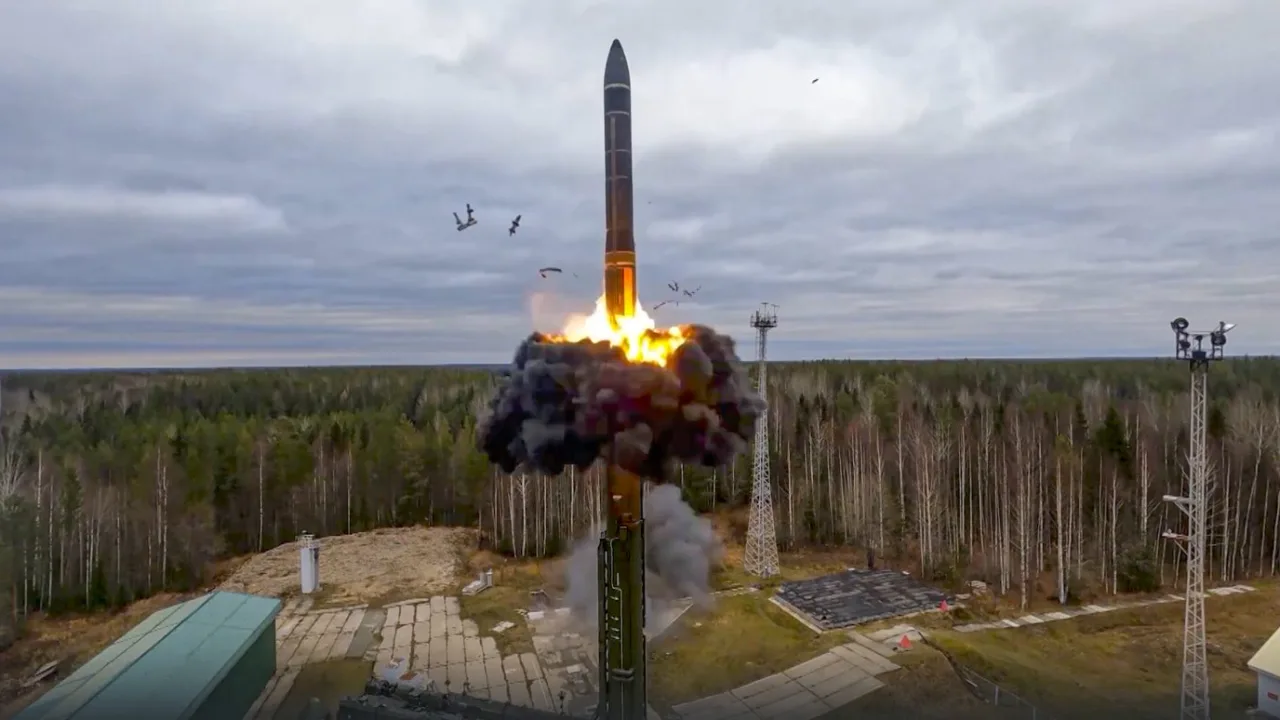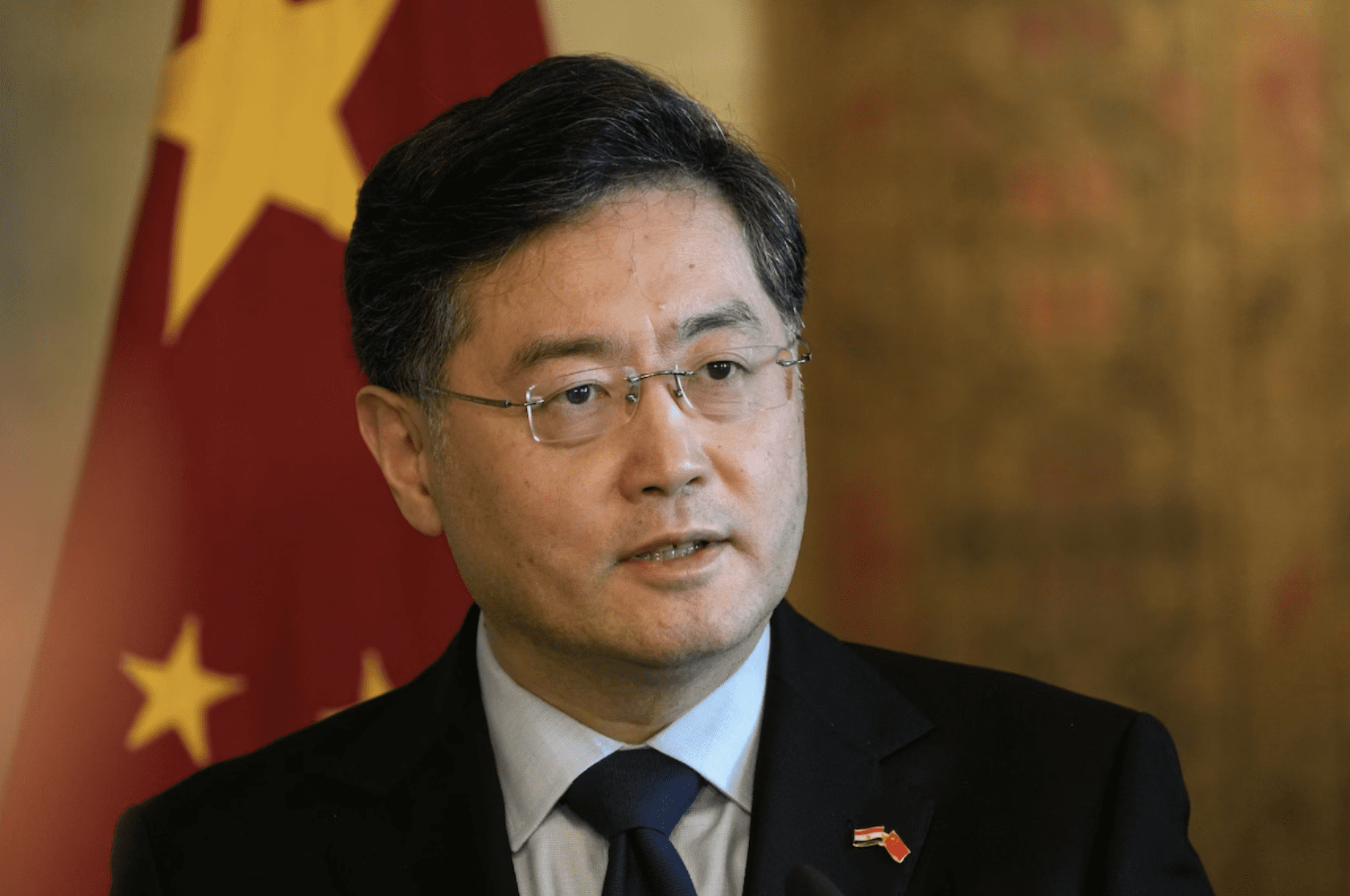The greatest threats to the world come from China and Russia. Only the U.S. guarantees global order and security.
This article was first published in Weltwoche, on January 26th, 2023. Click Here to read the original article.
Henry Luce, publisher of Time magazine, coined the term “American Century” in 1941, almost nine months before Japan attacked Pearl Harbor. He intended the phrase to describe what he saw in the decades ahead, which turned out to be largely correct. In the next six decades, the United States won two world wars, one hot against the Axis powers and one cold against the Soviet empire. Without necessarily so intending, and despite numerous imperfections, mistakes, and defeats, Washington created a kind of “world order,” which we basically still inhabit. This “order” has been and remains defensive and reactive in nature, not enforcing peace and stability affirmatively, but trying to deter or respond to threats when they arise, as they do so often.
Many countries, probably a majority at various times, resisted not just “Pax Americana,” but what it stood for: free peoples, under free governments, living freely. Soviet Communists obviously despised the American Century, and their Russian successors are waging war against it in Ukraine even now. China’s Communist Party retained power while the Soviet Union disintegrated, brutally repressed dissent in Tienanmen Square in 1989, and then followed for decades Deng Xiaoping’s policy of “hide and bide”: hide your capabilities and bide your time. Now, most immediately along China’s Indo-Pacific periphery, but also increasingly worldwide, China is no longer hiding and biding.
In addition, in the 1950’s and 1960’s, newly independent states, former colonies of collapsed European empires, tried repeatedly to create a “Third World, a “new world order,” a “new world information and communication order,” and more, all of which are now merely historical curiosities. Nonetheless, present today throughout the former Third World are continuing, grave problems of international terrorism and the proliferation of weapons of mass destruction. Internal strife has produced the near-collapse or actual disintegration of several post-colonial states, and more may follow.
What exactly motivated the United States, from 1945 on, to fashion the partial, ad hoc, incomplete “order” we now see? Contrary to familiar anti-American propaganda, we were not motivated by imperial aspirations, certainly not compared to Europe’s conquests in preceding centuries or prior great empires. Secretary of State Colin Powell, paraphrasing World War II General Mark Clark, often said, “the only land we ever asked for was to bury our dead.”
Nor, also contrary to contemporary criticism, was America obsessed with spreading democracy. Instead of looking exclusively to Woodrow Wilson’s view that America’s World War I goal was “to make the world safe for democracy,” the more accurate, realistic view was that of former Republican President Theodore Roosevelt, who said, “First and foremost, we are to make the world safe for ourselves. This is our primary interest. This is our war, America’s war.”(https://books.google.com/books?id=6uNJEAAAQBAJ&dq=Theodore+Roosevelt+“make+the+world+safe+for+ourselves”+&source=gbs_navlinks_s)
Stemming from a variety of causes, America’s complex, post-1945 role internationally, along with its Free World allies, launched multiple experiments in foreign affairs to help restore peace and stability. Some collective-security efforts, notably the United Nations, failed, and continue to fail in the world’s most important political conflicts, like the Cold War. By contrast, collective-defense efforts worked, notably NATO, the most successful politico-military alliance in history. Outside the North Atlantic area, Washington forged strong bilateral alliances with Japan, South Korea, Australia, and others. In economic affairs, new financial and trade institutions were created, some successful, some not, and needing either reform or abolition.
Much of this effort was explicitly directed again Communism’s threat, and it was never designed to be comprehensive. All of it has evolved, some parts better than others, as the world changed.
Those dissatisfied with this American-led effort are free to suggest other, more-workable alternatives. But who, or what, can perform such a role? And, since anarchy is the world’s default position, if America were to retire to its shores, the central risk is that whoever rushed to fill the vacuum would not have the Free World’s best interests at heart.
The United Nations is certainly not the answer. Russia and China, permanent Security Council members, have the veto power protecting them against any meaningful UN action. Because the veto applies to amendments to the UN Charter, Moscow and Beijing are totally secure within the UN.
Nor is the European Union the answer. One dangerous contemporary fantasy is the idea that the EU was principally responsible for preventing war on the Continent. Instead, allied occupation of the defeated Axis powers, followed by basing substantial NATO forces during the Cold War, meant that not a sparrow fell in Europe’s defense-industrial complex without Washington knowing. Unlike the post-1918 period, under an essentially permanent foreign troop presence, Europe’s defeated nations did not rise again to threaten world peace. And it was Ronald Reagan, not an EU leader, who publicly said, “Mr. Gorbachev, tear down this wall.”
Since the virus of US isolationism has recently reappeared among both Republicans and Democrats (albeit for different reasons), it is critical that Americans and foreigners alike appreciate that Washington’s foreign policy does not, and never has, stem purely from altruism(https://www.nationalreview.com/magazine/2023/01/23/containing-isolationism/). This reality should not concern friends and allies, but reassure them; acting to support a country’s own interests is far firmer ground on which to form alliances and friendships than fickle ideological theorizing or emotional impulses. Admittedly, building even an incomplete, imperfect order was easier when America’s natural allies recognized both the need and their own initial inability to take the necessary steps until they recovered from World War II. Former Axis powers, of course, took no role until the Cold War’s dimensions became clear.
Unfortunately, and unexpectedly, despite the overwhelming, peaceful victory of the US-led anti-Communist bloc, the Cold War’s ending debilitated Western collective defense, and we are only now recovering. Some said the USSR’s collapse meant we had reached “the end of history.” They saw a “peace dividend” as the reward, resulting in massive cuts to NATO and other allied defense spending which did not even begin to recover until the 9/11 attacks woke the world to the threat of international terrorism and nuclear proliferation. George W. Bush withdrew the United States from the 1972 Anti-Ballistic Missile Treaty to build national missile defenses for the United States and for allies. Even so, memories were short. Military spending had decreased so dangerously that even Barack Obama sought to persuade NATO to increase defense spending, agreeing in 2014, to reach spending levels of 2% of GDP by 2024. Although Donald Trump gained notoriety by stressing the 2% target, he was actually just saying more loudly what other Americans, including Obama, had said for years: the allies should bear their fair share of the burden. Many are, unfortunately still nowhere near achieving the target.
In 2022, Emmanuel Macron famously said NATO was “brain dead.” Russia proved him wrong, although the West collectively failed to deter the invasion, and still doesn’t have an adequate strategy to defeat Moscow’s aggression. Nonetheless, NATO proved sufficiently
attractive, despite Macron’s view, for Finland and Sweden to seek membership. Perhaps the new arrivals will encourage existing NATO members to meet their budget commitments.
Thus, as with the founding of NATO and America’s other post-1945 alliances, it took visible threats to force the complacent, bourgeois West to see that international risks and dangers had not disappeared. And the threats came in many ways worldwide. Led in many respects by Australia and New Zealand, we began to understand the nature of China’s threat to international telecommunications, using “businesses” like ZTE and Huawei to gain control of fifth-generation systems so they could channel whatever data they desired back to Beijing. That in turn led to a better understanding of Beijing’s whole-of-society efforts — economic and social as well as political and military measures — to gain hegemony along its vast Indo-Pacific periphery, and ultimately worldwide. Beijing is threatening Taiwan and the East China Sea; claims to have annexed the South China Sea, menacing all the littoral nations; increased provocations and deployments along its southern borders, from Vietnam to India; and is using its Belt-and-Road Initiative to extend its influence across Africa and the Middle East, and over Europe as well.
Joseph Biden’s withdrawal of US and NATO forces from Afghanistan, following Trump’s disastrously bad agreement with the Taliban, led to catastrophic consequences, opening Afghanistan once again to be a haven for international terrorists, creating a vacuum for China and Russia to fill, and oppressing the Afghan people. Iran continued progress toward deliverable nuclear weapons, as did North Korea, notwithstanding, in Iran, widespread protests that have imperiled the rule of the ayatollahs more seriously than at any point since the fall of the Shah in the 1979 Islamic Revolution. And for Europe, of course, the threatening century ahead became clear last year on February 24 when Russia launched its unprovoked aggression against Ukraine. There was as well more evidence of instability and threats to peace in the former Third World.
These problems, starting with an increasingly apparent China-Russia entente, constitute global threats that require a united Western response. America must lead this response, most importantly because its vital national interests are endangered by each of these spreading threats. What our allies and friends in Asia and Europe must recognize, however, is that they too face a global struggle, and need to participate fully in the response. Chancellor Olaf Scholtz seemed to have recognized this imperative shortly after Russia’s aggression when he announced a zeitenwende in German security policy. Unfortunately, despite a few modest steps, the “sea change” has not occurred. That must change, as should Macron’s attitude toward NATO.
The January 13 Kishida-Biden summit was an historic opportunity. Just prior to the meeting, Japan’s leader Fumio Kishida announced a bigger policy shift even than Scholtz, amending de facto its pacifist Constitution, a long-time goal of his predecessor Shinzo Abe. Clearly responding to the massive threats posed by China and North Korea, Kishida pledged that Tokyo would double its defense spending to 2% of GDP (the NATO target) in five years. If Japan does so, it will have the world’s third biggest military after America and China. Kishida’s decision followed decades of quiet internal debate about whether Japan had become a “normal nation,” one that could be trusted to maintain its self-defense, together with the US, its closest ally. Germany needs to have the same debate, and come to the same conclusion.
Equally important, Russia’s attack on Ukraine, and the manifest political support provided by China, accelerated Japan’s decision, and is changing other Asian views in many important ways. Under Abe, Tokyo led efforts to energize the Asian “Quad” (Japan, India, Australia, and the US), and South Korea is now selling Poland weapons. Not having dense
alliance relationships like NATO means that Asia’s hub-and-spoke bilateral alliances with Washington have a long way to go before there could constitute East and South Asian collective-defense arrangements comparable to the North Atlantic, but events are moving fast.
Meanwhile, neither Europe nor America can afford more mistakes or timidity. The global threats we already know, and many we do not, are advancing, not receding. The next two years will therefore amount to a “window of vulnerability.” China and Russia (the world’s two greatest strategic threats), as well as terrorists, proliferators, and rogue states will seek to exploit the current environment before the West is prepared.
The outcome of America’s upcoming 2024 presidential elections could well shape Washington’s foreign policy for the rest of this century. In all probability, neither Trump nor Biden will be the candidates of their respective parties, and the contests for the Republican and Democratic nominations will be wide open. Given the breadth and dangers of the national-security threats, there is also every prospect that foreign and defense issues will be far more central to the 2024 than in other post-Cold War US elections. Although isolationists have recently gotten more than their share of press attention, they still represent a very small portion of the American electorate. The real question is whether the Republican Party has within it a new Ronald Reagan to forge and develop the security structures that will protect the Free World in yet another American Century. We shall see.
Im Jahr 1942, fast neun Monate nach dem japanischen Überfall auf Pearl Harbor, prägte
Henry Luce, der Herausgeber der Zeitschrift
Time, den Begriff «amerikanisches Jahrhundert».
Damit wollte er beschreiben, wie er sich die
nächsten Jahrzehnte vorstellte, und seine Einschätzung erwies sich als weitgehend korrekt.
In den folgenden sechs Jahrzehnten gewannen
die Vereinigten Staaten zwei Weltkriege, den
gegen die Achsenmächte und den Kalten Krieg
gegen die Sowjetunion. Unbeabsichtigt und
trotz zahlreicher Schwierigkeiten, Irrtümer und
Niederlagen schuf Washington eine Art «Weltordnung», in der wir heute im Grunde immer
noch leben. Diese Ordnung, von ihrem Wesen
her defensiv und reaktiv, erzwingt nirgendwo
Frieden und Stabilität, sondern ist bemüht, Bedrohungen entgegenzuwirken und überall dort
zu reagieren, wo sie sich zeigen.
Viele Länder, zu unterschiedlichen Zeiten
wahrscheinlich eine Mehrheit, lehnten nicht
nur die Pax Americana ab, sondern alles, wofür
sie stand – freie Völker, die unter freien Regierungen in Freiheit leben. Die sowjetischen
Kommunisten verachteten das amerikanische
Jahrhundert natürlich, und der Krieg ihrer russischen Nachfolger in der Ukraine richtet sich
auch gegen Amerika. Die chinesische Kommunistische Partei blieb an der Macht, während die
Sowjetunion zerfiel. 1989 ging die Pekinger Führung brutal gegen die Demonstranten auf dem
Tiananmen-Platz vor, und dann folgten lange
Jahre unter Deng Xiaoping, dessen Motto lautete: «Stärke verbergen und auf den richtigen
Augenblick warten». Heutzutage verbirgt China
seine Stärke nicht mehr, wie im Indopazifik und
in wachsendem Mass weltweit deutlich wird.
Junge, unabhängig gewordene Staaten, einstige Kolonien europäischer Kolonialmächte,
versuchten in den 1950ern und 1960ern, eine
«Dritte Welt» zu schaffen, eine «neue Weltordnung», eine «neue internationale Informations- und Kommunikationsordnung» und
so weiter – heute nicht mehr als historische
Kuriositäten. Gleichwohl sind überall in der
ehemaligen Dritten Welt schwerwiegende Probleme des internationalen Terrorismus und der
Verbreitung von Massenvernichtungswaffen zu
beobachten. Interne Konflikte haben in mehreren postkolonialen Staaten für Auflösungs- und
Zerfallserscheinungen gesorgt, und das wird
auch in Zukunft so sein.
«Das ist unser Krieg, Amerikas Krieg»
Was genau bewog die Vereinigten Staaten, nach
1945 die unvollständige «Ordnung» zu schaffen,
die wir heute haben? Entgegen der üblichen antiamerikanischen Propaganda liessen wir uns nicht
von imperialistischen Ambitionen leiten, schon
gar nicht, wenn man es mit den europäischen Eroberungen in vorangegangenen Jahrhunderten
oder den alten Grossreichen vergleicht. Aussenminister Colin Powell hat, Weltkriegsgeneral
Mark Clark paraphrasierend, oft gesagt: «Das
Land, das wir haben wollten, sollte nur dazu dienen, unsere Toten zu begraben.»
Amerika war auch nicht darauf aus, Demokratie zu verbreiten, wie heutzutage oft behauptet wird. Statt sich an Woodrow Wilson
zu orientieren, der es als Ziel Amerikas im Ersten Weltkrieg bezeichnet hatte, die Welt «sicher
für die Demokratie» zu machen, vertrat Präsident Theodore Roosevelt, ein Republikaner,
die sehr viel realistischere Ansicht: «Wir müssen die Welt in erster Linie für uns selbst sicher
machen. Das ist unser Hauptinteresse. Das ist
unser Krieg, Amerikas Krieg.»
Nach 1945 unternahm Amerika aus diversen
Gründen gemeinsam mit den Verbündeten der
freien Welt verschiedene aussenpolitische Versuche zur Wiederherstellung von Frieden und
Stabilität. Einige Sicherheitsorganisationen,
namentlich die Vereinten Nationen, sind
bei den wichtigsten politischen Konflikten
der Welt, wie etwa dem Kalten Krieg, erfolglos gewesen und sind es weiterhin. Dagegen
funktionierten Verteidigungsbündnisse, insbesondere die Nato, die erfolgreichste politischmilitärische Allianz der Geschichte. Neben dem
nordatlantischen Bündnis schmiedete Amerika starke bilaterale Bündnisse mit Japan,
Südkorea, Australien und anderen Staaten.
Auf wirtschaftlichem Gebiet wurden unterschiedlich erfolgreiche Finanz- und Handelsinstitutionen gegründet, die weder reformbedürftig noch überflüssig sind. Viele dieser
Organisationen richteten sich ausdrücklich
gegen die kommunistische Bedrohung. Sie
alle haben sich in einer sich wandelnden Welt
weiterentwickelt, einige besser als andere.
Virus des Isolationismus
Kritikern dieser von Amerika angeführten Bestrebungen steht es frei, bessere Alternativen
vorzuschlagen. Aber wer oder was könnte eine
solche Aufgabe wahrnehmen? Ein Rückzug
Amerikas aus der Welt ginge jedenfalls mit dem
Risiko einher, dass derjenige, der über kurz
oder lang die Leerstelle füllen würde, nicht die
Interessen der freien Welt im Sinn hätte.
Die Vereinten Nationen sind gewiss nicht
die Antwort. Russland und China, ständige
Mitglieder des Sicherheitsrats, können durch
ihr Veto jede bedeutsame Aktion der Uno verhindern. Weil das Vetorecht auch für eventuelle
Änderungen der Uno-Charta gilt, können Moskau und Peking sich innerhalb der Vereinten Nationen völlig sicher fühlen.
Ebenso wenig kann die Europäische Union
die Antwort sein. Die Vorstellung, die EU habe
dafür gesorgt, dass es auf dem Kontinent keinen
Krieg mehr gegeben habe, ist ein gefährlicher
Irrglaube. Vielmehr bedeutete die alliierte Besatzung der geschlagenen Achsenmächte, auf
welche die Stationierung starker Nato-Verbände
während des Kalten Kriegs folgte, dass Washington bestens über die Verhältnisse im militärischindustriellen Komplex Europas Bescheid wusste. Dank der Präsenz von Besatzungstruppen in
den besiegten europäischen Ländern ging von
ihnen, anders als in der Zeit nach 1918, auch
keine Gefahr für den Weltfrieden aus. Und
es war nicht irgendein EU-Politiker, sondern
Ronald Reagan, der in Berlin ausrief: «Mr Gorbatschow, reissen Sie diese Mauer ein.»
Seit in jüngster Zeit der Virus eines Isolationismus unter Republikanern wie Demokraten
(wenn auch aus unterschiedlichen Gründen)
wieder umgeht, sollte in Amerika und im Ausland erkannt werden, dass die amerikanische
Aussenpolitik noch nie von reinem Altruismus
getrieben war. Diese Realität sollte Freunde und
Verbündete nicht beunruhigen, sondern ihnen
Sicherheit geben. Eine Politik, die den eigenen staatlichen Interessen dient, ist eine weitaus zuverlässigere Grundlage für Bündnisse
und Freundschaften als beliebige Ideologien
oder emotionale Impulse. Gewiss, der Aufbau
selbst einer unvollständigen, unvollkommenen
Ordnung war leichter in einer Zeit, in der die
natürlichen Verbündeten Amerikas eingedenk
ihrer eigenen Schwäche die Notwendigkeit erkannten, die erforderlichen Schritte zu unternehmen, bis sie sich nach dem Zweiten Weltkrieg
wieder erholt hatten. Ehemalige Achsenmächte
übernahmen erst dann eine Rolle, als die Dimensionen des Kalten Kriegs klarwurden.
Trotz des überwältigenden, friedlichen
Siegs des von den USA geführten antikommunistischen Blocks schwächte der Ausgang des Kalten Krieges bedauerlicherweise
das westliche Verteidigungsbündnis. Davon
erholen wir uns erst jetzt. Manche sprachen
nach dem Zusammenbruch der Sowjetunion
von einem «Ende der Geschichte». Sie sahen
eine «Friedensdividende» als Belohnung, was
zu massiven Kürzungen bei den Verteidigungsausgaben von Nato-Staaten führte, die erst
dann aufwachten, als die Welt nach den Anschlägen vom 11.September 2001 mit internationalem Terrorismus und atomarer Aufrüstung konfrontiert war. Präsident George
W.Bush kündigte den ABM-Vertrag von 1972,
um das Raketenabwehrsystem NMD für die
Vereinigten Staaten und für Verbündete aufbauen zu können. Dennoch hatten viele Leute
ein kurzes Gedächtnis. Die Militärausgaben
waren so drastisch gekürzt worden, dass selbst
Barack Obama der Nato empfahl, die Verteidigungsausgaben zu erhöhen. 2014 wurde
vereinbart, die Ausgaben bis 2024 auf zwei
Prozent des Bruttoinlandprodukts (BIP) zu
erhöhen. Obwohl Donald Trump auf der Einhaltung dieses Ziels bestand und sich damit
unbeliebt machte, sagte er nur ein wenig lauter, was andere Amerikaner, einschliesslich
Barack Obama, seit Jahren gesagt hatten: Die
Verbündeten sollten sich angemessen an den
Verteidigungsausgaben beteiligen. Leider sind
viele noch immer weit von diesem Ziel entfernt.
Selbstzufriedener Westen
2019 bezeichnete Emmanuel Macron die Nato
als «hirntot». Russland widerlegte ihn, auch
wenn der Westen die Invasion nicht verhindert
und nach wie vor keine adäquate Strategie im
Kampf gegen die russische Aggression hat.
Dennoch erwies sich die Nato als so attraktiv, dass Finnland und Schweden einen Aufnahmeantrag stellten – trotz Macron. Vielleicht
werden die Neuen die übrigen Nato-Staaten
ermutigen, ihren Rüstungsverpflichtungen
nachzukommen.
Wie bei der Gründung der Nato und anderer westlicher Bündnisse nach 1945 bedurfte
es unübersehbarer Gefahren, die den selbstzufriedenen, bürgerlichen Westen zu der Erkenntnis brachten, dass internationale Risiken und Bedrohungen nicht verschwunden
waren. Die Gefahren zeigten sich weltweit
in vielerlei Gestalt. Australien und Neuseeland wiesen uns auf die Bedrohung der internationalen Telekommunikation durch China
hin, das sich anschickte, mit Unternehmen wie ZTE und Huawei die Kontrolle über Telekommunikationsnetze der fünften Generation zu erlangen, um an interessante Daten zu
kommen. Daraus ergab sich ein tieferer Einblick in die wirtschaftlichen, sozialen, politischen und militärischen Interessen Chinas, das
entschlossen ist, sich im indopazifischen Raum
und weltweit als Hegemonialmacht zu etablieren. China geht auf Konfrontationskurs mit Taiwan, erhebt Ansprüche auf das Südchinesische
Meer und bedroht die Anliegerstaaten. Man provoziert die südlichen Nachbarn, von Vietnam
bis Indien. Mit Hilfe der Neuen Seidenstrasse
will China seinen Einfluss in Afrika, Nahost und
auch in Europa ausweiten.
Präsident Bidens Abzug der westlichen Streitkräfte aus Afghanistan, dem Trumps desaströses Abkommen mit den Taliban vorangegangen
war, hatte katastrophale Konsequenzen. Afghanistan wurde abermals ein Rückzugsort
für internationale Terroristen, das entstandene
Vakuum wird von China und Russland ausgefüllt, und die Bevölkerung wird unterdrückt.
Der Iran schreitet auf dem Weg zur Produktion
einsatzfähiger Atomwaffen immer weiter voran
(genau wie Nordkorea), obwohl das Mullah-Regime durch massive, landesweite Proteste ernsthafter gefährdet ist als zu irgendeinem Zeitpunkt seit dem Sturz des Schahs 1979 durch die
Islamische Revolution. Für Europa zeigte sich
die Jahrhundertbedrohung am 24.Februar vergangenen Jahres, als Russland unprovoziert die
Ukraine angriff. Auch in der ehemaligen Dritten
Welt kam es zu Instabilität und Gefahren für
den Weltfrieden.
Diese Probleme, angefangen mit der chinesisch-russischen Entente, stellen globale Bedrohungen dar, die eine vereinte Reaktion des
Westens erfordern. Amerika muss diese Reaktion anführen, weil seine nationalen Interessen durch jede dieser Gefahren bedroht sind.
Unsere Verbündeten und Freunde in Asien und
Europa müssen jedoch erkennen, dass auch
sie mit einem globalen Konflikt konfrontiert
sind, und sich vorbehaltlos an der Reaktion beteiligen. Bundeskanzler Olaf Scholz hat dies
offenbar erkannt, als er kurz nach der russischen Invasion von einer «Zeitenwende» in der
deutschen Sicherheitspolitik sprach. Leider ist,
abgesehen von einigen bescheidenen Schritten,
bislang wenig passiert. Das muss sich ändern,
und das gilt auch für Macrons Haltung zur Nato.
Das Gipfeltreffen von Joe Biden und dem japanischen Ministerpräsidenten Fumio Kishida
am 13.Januar war eine historische Gelegenheit.
Kurz zuvor hatte Kishida eine noch grössere
Wende als Scholz angekündigt, als er bekanntgab, dass die faktisch pazifistische Verfassung
abgeändert werden solle – ein altes Projekt seines Vorgängers Shinzo Abe. Offenkundig als Reaktion auf die massiven Drohungen von China
und Nordkorea versprach Kishida, dass Japan
seine Rüstungsausgaben binnen fünf Jahren auf
zwei Prozent des BIP (das Nato-Ziel) erhöhen
werde. Japan wird dann, nach Amerika und
China, das drittstärkste Militär der Welt haben.
Kishidas Entscheidung waren jahrzehntelange
Debatten vorausgegangen, ob Japan eine «normale Nation» geworden sei, die – in enger Kooperation mit den USA – für seine Verteidigung
einstehen könne. Die Deutschen müssen die
gleiche Debatte führen und zu dem gleichen
Ergebnis kommen.
«Fenster der Verwundbarkeit»
Der russische Angriff auf die Ukraine und die
Unterstützung durch China beschleunigte
natürlich die japanische Entscheidung und
wird auch in anderen Teilen Asiens zu einem
Stimmungsumschwung führen. Unter Abe gab
Tokio wichtige Impulse, um die Quad-Gruppe (Japan, Indien, Australien, USA) zu stärken,
die das Ziel verfolgt, einen «freien und offenen Indopazifik» zu garantieren, und Südkorea liefert mittlerweile Waffen nach Polen.
Da viele asiatische Länder nur bilaterale Verträge mit Washington geschlossen haben,
wird es noch lange dauern, bis es ost- und südasiatische Militärbündnisse gibt, die mit der
Nato vergleichbar wären. Aber die Dinge entwickeln sich schnell.
Weder Europa noch Amerika können sich
weitere Fehler oder Ängstlichkeiten leisten. Die
globalen Bedrohungen, bekannte und noch unbekannte, nehmen zu, nicht ab. Die nächsten
zwei Jahre werden daher ein «Fenster der Verwundbarkeit» sein. China und Russland (die beiden grössten weltweiten Bedrohungen), Terroristen, Waffenhändler und Schurkenstaaten
werden bestrebt sein, die aktuelle Situation auszunutzen, bevor der Westen bereit ist.
Der Ausgang der nächsten Präsidentschaftswahl in Amerika könnte die amerikanische
Aussenpolitik für den Rest des Jahrhunderts
prägen. Höchstwahrscheinlich werden weder
Trump noch Biden kandidieren, und wer von
den beiden Parteien ins Rennen geschickt wird,
ist völlig offen. Angesichts der Bedrohungen
für die nationale Sicherheit dürften aussenpolitische und militärische Themen eine
wichtigere Rolle spielen als bei jeder anderen
Präsidentschaftswahl seit dem Ende des Kalten Kriegs. Zwar haben Isolationisten in der
jüngsten Zeit unverhältnismässig viel Medienaufmerksamkeit bekommen, aber sie repräsentieren nur einen sehr geringen Anteil der Bevölkerung. Die eigentliche Frage lautet, ob es in
der Republikanischen Partei einen neuen Ronald Reagan gibt, der die Sicherheitsstrukturen
schaffen und stärken kann, welche die freie Welt
in einem zweiten amerikanischen Jahrhundert
schützen werden. Wir werden sehen.
Weder Europa noch Amerika
können sich weitere Fehler oder
Ängstlichkeiten leisten.
«Unsere Verbündeten müssen erkennen, dass wir mit einem globalen Konflikt konfrontiert
sind»: Biden (l.) und Putin bei Guy Parmelin in Genf, 16. Juni 2021.
John Bolton war nationaler Sicherheitsberater
des ehemaligen US-Präsidenten Donald Trump.
Aus dem Englischen von Matthias Fienbork
